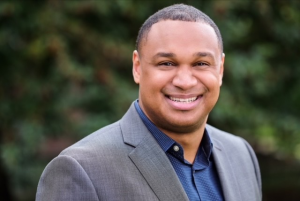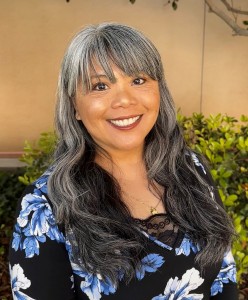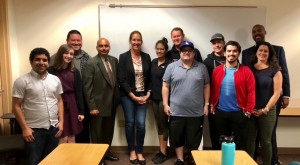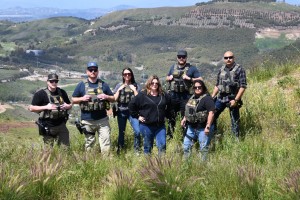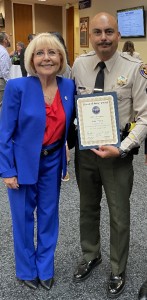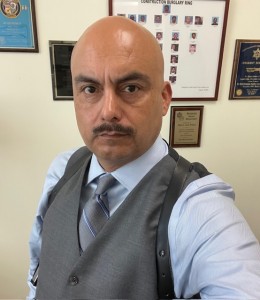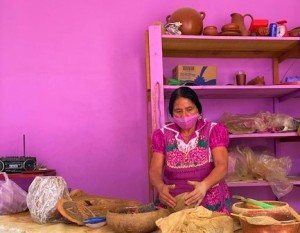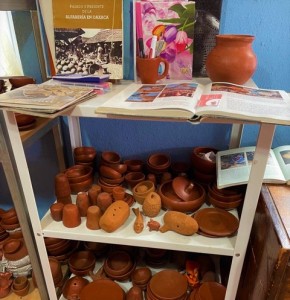Getting to Know Professor Sean Veal
Meet Professor Sean Veal! Professor Veal is a changemaker in our community transforming the lives of MPPA students here at California Lutheran University. Professor Veal inspires students to think critically, act ethically, and lead with empathy. His dynamic teaching style, coupled with real-world insights, empowers students to tackle today’s most pressing public challenges with confidence and creativity.
1. What is your name and what do you teach?
My name is Sean Veal. I teach capstones and the urban policy and planning courses.
2. How long have you been teaching?
I have been teaching at Cal Lutheran for four years.
3. Getting to know you outside of the classroom, what are some of your favorite things to do?
Outside of the classroom I enjoy staying active by playing basketball and weight lifting. As a former college athlete, I value being healthy and it’s become part of my DNA. I also enjoy photography and traveling when time permits.
4. What initially sparked your interest in the public policy and public administration sector, and how did it impact your career path moving forward?
The catalyst of my interest in public policy and administration is an understanding of the impact that policy has on our day-to-day lives. Moreover, public policy is imperative to addressing societal issues yet too often it’s reactive. I’m intellectually attracted to the study of public policy in contemplating more proactive approaches.
5. What do you love most about teaching in the MPPA Program?
What I enjoy most about teaching is observing students thinking thoughtfully and creatively about our most pressing policy issues in our communities. Witnessing students collaboratively working through ideas that may eventually become realities is rewarding.
6. What do you hope students will take away from your course, both in knowledge and real-world skills?
The main take aways that I hope students gain from my courses are: 1) being well informed is what separates experts from generalists, in that when people are well versed in a subject it can help impact prudent, implementable public policy; and 2) being assertive and asking the right questions is a strength as students navigate their careers.
7. How would you describe your teaching philosophy and how do you think it challenges MPPA students?
When I was an undergraduate and graduate student at Cal Lutheran, the common theme that professors would stress is that CLU is an institution that teaches you how to think, not what to think. I’ve adopted that same mantra in my teaching philosophy with the goal of encouraging students to think critically through an analytical lens. My objective is to help train students how to dissect policy topics to foster a path to a student reaching their own conclusion.
8. In your opinion, how can students best prepare for a career in public service while they are still in the MPPA Program?
While in the MPPA program students can best prepare for a career in public service by focusing on individual skills and attributes, and then utilizing course work in the program to both accentuate and improve those skills. For example, if a student desires to be in a leadership role, they can hone in on courses directly addressing leadership or management, while also being intentional about leading group discussion boards, participating in class with well thought-out remarks, taking initiative in group projects, and being involved in extracurricular activities such as International County / City Management Association (ICMA).
9. Additionally, from your experience, what are some skills you believe are necessary to succeed in the public service/public policy sector?
A skill requisite to succeed in public service is understanding one’s role in the process. In other words, be realistic about the capacity of one’s role, authority, influence, advantages, and limitations. It requires a mindset of understanding when to rely on resources, rather than attempting Sisyphean tasks. Employing this will help reduce burnout and allow one to operate more effectively within a public policy or public administration role. In that same vein, or more simply put, avoid being myopic. Welcome and listen to other ideas from all stakeholders one may encounter when in public service professions.
10. If you could spend one day with a public figure/leader, past or present, who would it be and why?
If I could spend one day with a public figure, I would spend it with Pete Carroll who is a professional and collegiate football coach. I admire his impact on athletes in the way he mobilizes them. It’s a very simple concept he relays to his teams; always compete. No matter the circumstances always compete is what Pete Carroll preaches. In our careers, and even in our personal lives, it’s important to always exert one’s best effort since we cannot control exogenous factors, but we can dictate our efforts. Always compete.
11. What is one piece of advice you would give to current and prospective MPPA students?
One piece of advice I would give to current and prospective students is to be a knowledge sponge not only while in school, but beyond the classroom in professional careers. I’ve found that one can absorb more by merely listening as opposed to always trying to have the right answer.
We want to sincerely thank Professor Veal for giving his advice and insight into the public sector. We are proud to have Professor Veal as an educator in the MPPA program. He continues to inspire as he prepares the next generation of public leaders to make a meaningful difference in the world.

